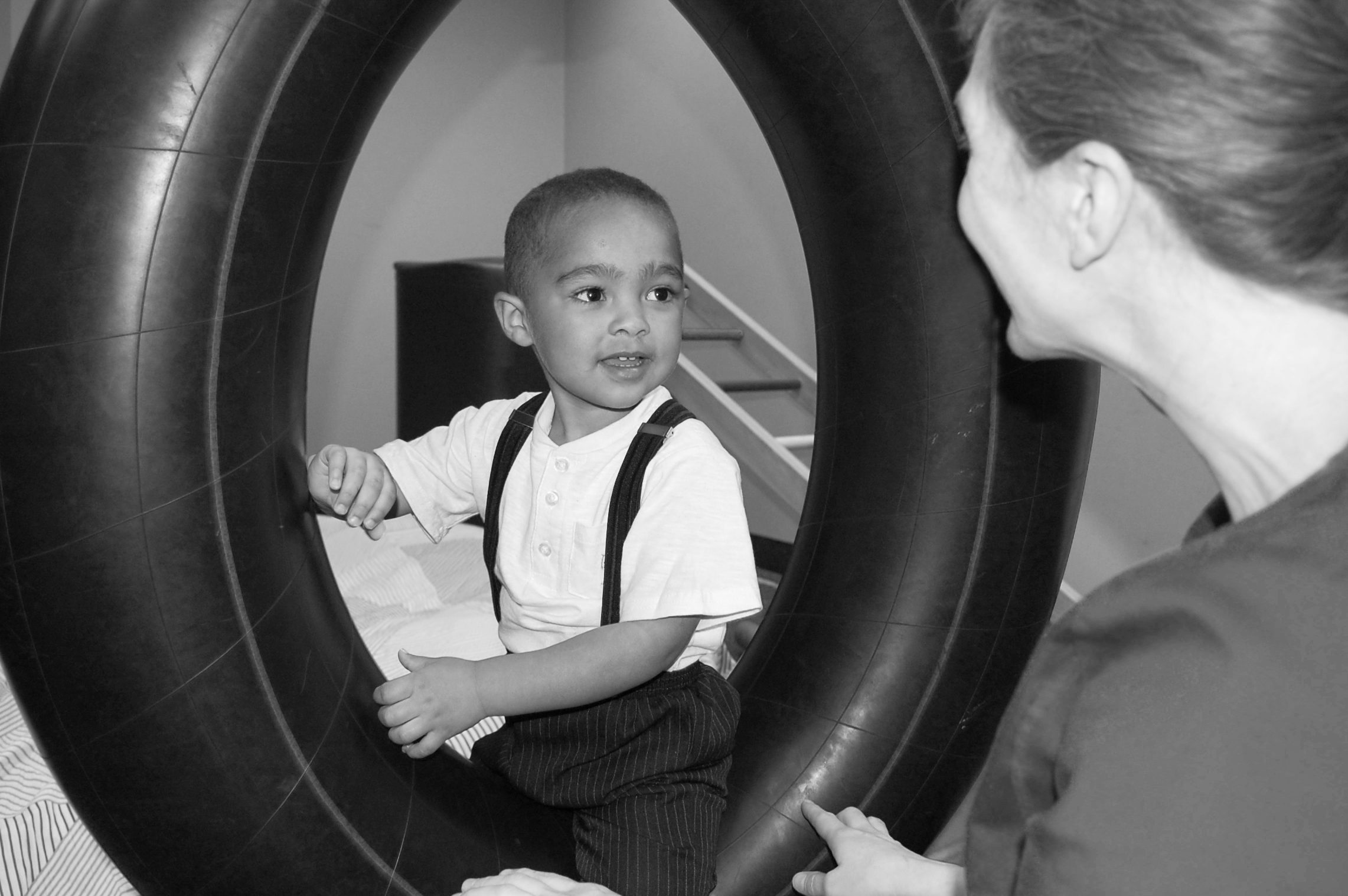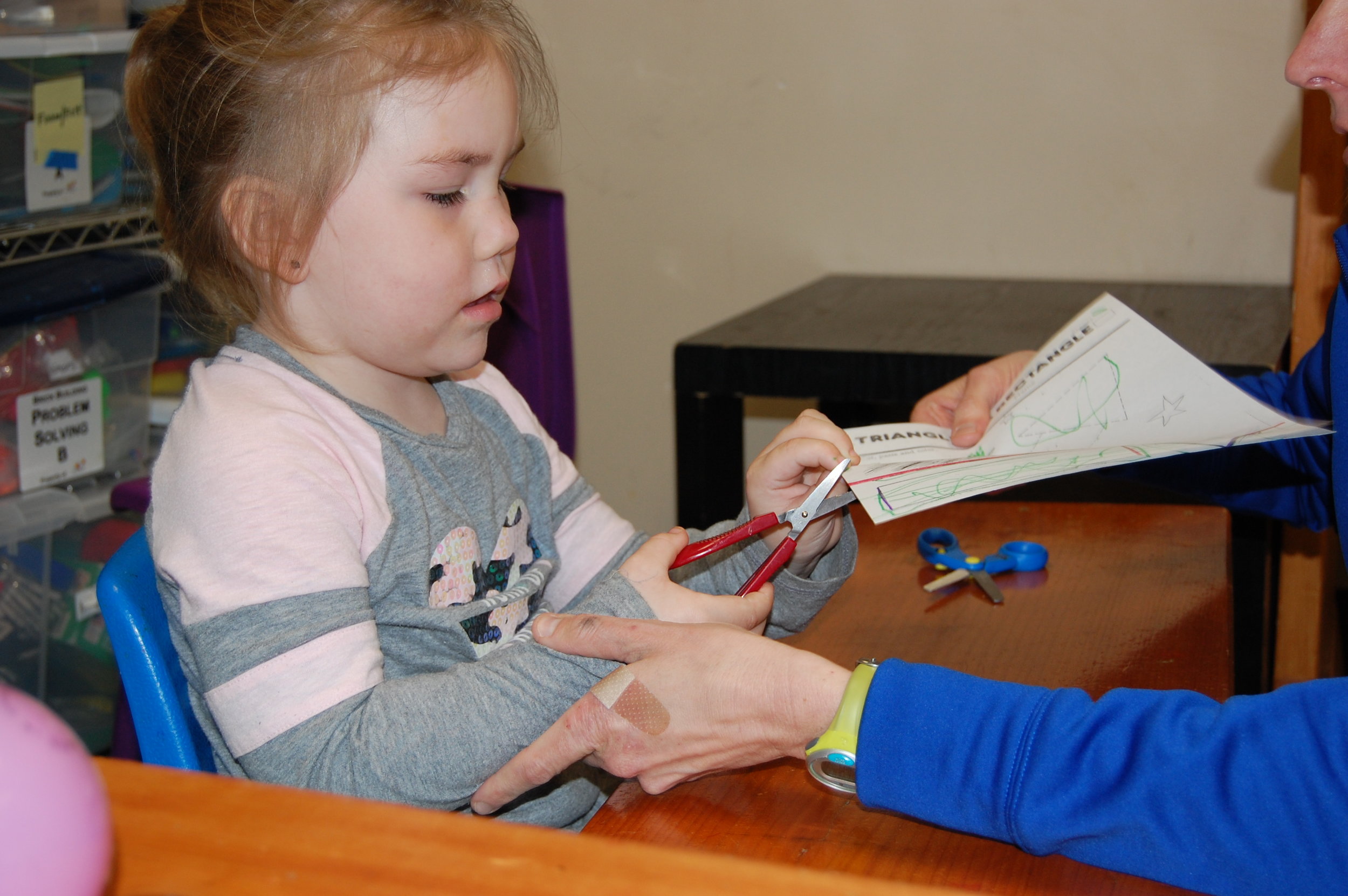OCCUPATIONAL THERAPY Defined
OT is a skilled therapy service that aims to help individuals achieve their highest level of independence in all areas of daily living. These areas may include self-care skills, work, leisure, social skills, and play skills. Occupational Therapists (OTs) help those they work with succeed at the “job of living.” Being successful and independent allows an individual to feel fulfilled and realize their sense of purpose.
Signs OCCUPATIONAL THERAPY may be needed
OTs work with a wide range of ages and diagnoses, both pediatric and adult. In our pediatric practice, OT may be warranted if any of the following signs or symptoms are noticed:
Fine Motor Difficulties:
Feeding and/or Oral-Motor Challenges:
Sensory Motor Difficulties:
Coordination Problems:
OT can help adults following an injury or those who’ve experienced a stroke or other neurological challenge.
Meet our Occupational Therapists
Morgan Han
Morgan Hellenbrand-Han, MS, OTR/L has a bachelor's degree in psychology and graduated with a master’s degree in occupational therapy from the University of Wisconsin- La Crosse in 2012. Morgan has been with CSTC since June of 2015. In addition to seeing clients she is the Director of Operations. Morgan previously worked in early intervention in Massachusetts and has experience in sensory integration from her fieldwork. Morgan enjoys working with children and families on sensory processing and feeding difficulties. Morgan has completed courses in the Therapressure Protocol, Astronaut Training Program, Rhythmic Movement Training (RMTi), and feeding. In her free time Morgan enjoys running and completing triathlons.
Nicole Cameron
NC - Nicole Cameron, OTRL, graduated with a bachelor’s degree in Psychology from Michigan State University and earned her masters degree in Occupational Therapy from Eastern Michigan University in 2015. She has worked in a variety of settings and roles, including classrooms, an after-school program, a residential treatment facility and in-home. She has experience working with children with behavioral, learning and emotional challenges, sensory, feeding, and physical challenges. She worked as a pediatric OT in an outpatient clinic for two years in the Grand Rapids area prior to joining the team at CSTC in September 2017. She is an Interactive Metronome Certified Provider, and is AMPS certified (Assessment of Motor and Process Skills). In addition, she has completed courses on the CO-OP approach (Cognitive Orientation of Daily Occupational Performance), telehealth, emotional regulation, feeding, sensory integration and processing, and motor development. In her free time, she enjoys reading and playing the piano.
Lauren Siciliano
Lauren Siciliano, MOT, OTRL graduated from Baker College of Graduate Studies with her Master of Occupational Therapy degree in 2017 and joined the CSTC team in 2018. She has previous experience working in hospital and home care settings. Lauren was inspired to become an OT as she grew up watching therapists work with her younger brother, who has cerebral palsy. Lauren specializes in feeding and is the Assistant Director of Clinical Operations for CSTC. She enjoys reading and playing with her Goldendoodle, Lani, in her free time.
Hannah BURNS
Hannah Burns, MS, OTRL, graduated with a bachelor's degree in Kinesiology from Central Michigan University in 2017 and earned her master's degree in Occupational Science & Therapy from Grand Valley State University in 2018. She joined the CSTC team in October of 2019 and her interest areas include vision, physical disabilities, and sensory intervention. In her free time, Hannah enjoys reading, exercising, cooking, and being outdoors with friends and family.
What OT Looks Like
In our pediatric population, OT looks like play. Play is the “job” of children, so our OTs make therapy challenging and goal-directed, yet a lot of fun. Our therapy gyms are equipped with enticing climbing equipment, various swings, and a wide selection of toys, games, arts and crafts. Activities are mindfully chosen to promote skill development to reach a child’s goals, with the focus on having fun! Your child will likely think of OT as “play time”. For example, a child who struggles with tolerating various food textures may spend time in our therapy gym blowing bubbles while on a swing to prep for eating. Climbing through an obstacle course and digging for a “treasure” in play dough may be used to help a child with delayed fine motor skills.
Resources
Books:
Sensational Kids: Hope and Help for Children with Sensory Processing Disorder (SPD) by Lucy Jane Miller
No Longer A SECRET: Unique Common Sense Strategies for Children with Sensory or Motor Challenges by Doreit Bialer and Lucy Jane Miller
Raising a Sensory Smart Child: The Definitive Handbook for Helping Your Child with Sensory Processing Issues by Lindsey Biel.
Online:
The OT Toolbox: www.theottoolbox.com -Blog with information on various developmental areas and a break down of many easy, fun activities to develop and improve skills.
OT Mom: www.ot-mom-learning-activities.com - Website written by an occupational therapist that offers very nice visual examples and clearly written out activities to help with various skills, mainly related to foundational skills needed for school.
Therapy Fun Zone: therapyfunzone.net -Blog with great activities, downloads, and an online store.
The Inspired Treehouse: theinspiredtreehouse.com -Blog run by physical therapists and occupational therapists that offers information, tips, and strategies to help readers conquer the common developmental roadblocks that come up for kids.










